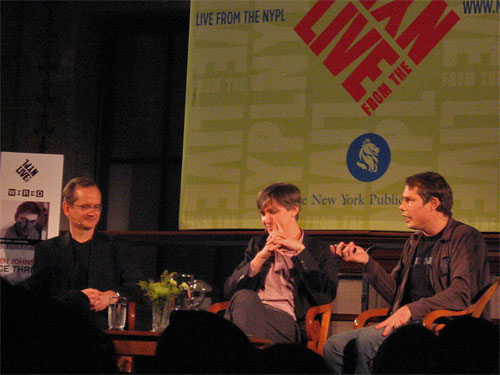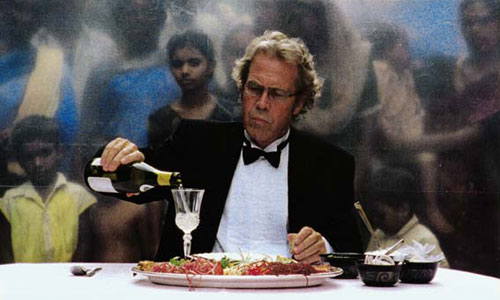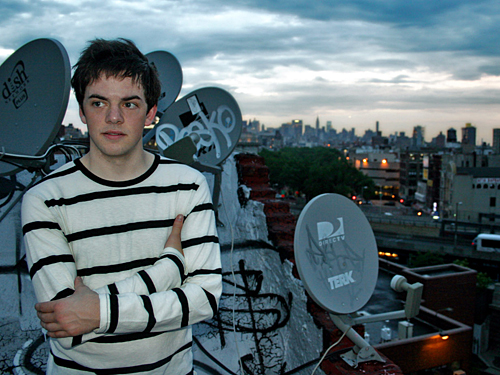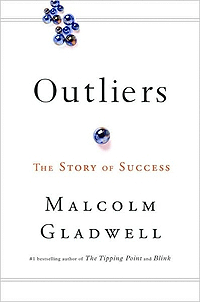A triptich of films with Tokyo as their jumping off point. Each one by a different director: Michel Gondry, Leos Carax and Bong Joon-ho. Of the three, Critics seem to like Gondry’s the best, followed by Joon-ho and none seem to like Carax’s. For me the order is just the reverse. Usually, I love Gondry’s films but Interior Design was my least favorite of this trio. I’ve only seen one of Joon-ho’s films previously, the Host (worth a watch in it’s own right), here Shaking Tokyo was my second favorite. Of these particular three, my favorite was Merde by Carax. The film still above is from Merde. Maybe I liked it the best because it’s the one that “follows the debased exploits of an unsightly subterranean creature.”
All three tell unique stories, and are shot really well, particularly Joon-ho’s Shaking Tokyo. You can tell these are seasoned filmmakers who are each doing their thing. Gondry’s Interior Design had the necessary quirkiness, but Merde was just plain weird and that is what I like the best. My only criticism is that although in many ways the three films are distinctly Tokyo, they are also not Tokyo enough, in each, the city itself plays only a minor role which seems an odd thing to pass up since it is such a rich source and also happens to be the title of the movie! Two Frenchmen, and a Korean make a movie that is actually three, in Gibberish, French, German, Korean, and Japanese with English subtitles. (Maybe it’s too many cooks?)
I got to see a special screening at the French Institute but you can go see the movie when it opens on March 6th.









 While reading Malcom Gladwell’s latest book I couldn’t really figure out why it is so controversial. Everything he said made a lot of sense to me. Perhaps he is just really good at laying our his arguments, he is a convincing writer, all the while expounding theories that fly in the face of the ideals that the United States is mostly built on, like The Myth of the Self Made man.
While reading Malcom Gladwell’s latest book I couldn’t really figure out why it is so controversial. Everything he said made a lot of sense to me. Perhaps he is just really good at laying our his arguments, he is a convincing writer, all the while expounding theories that fly in the face of the ideals that the United States is mostly built on, like The Myth of the Self Made man.